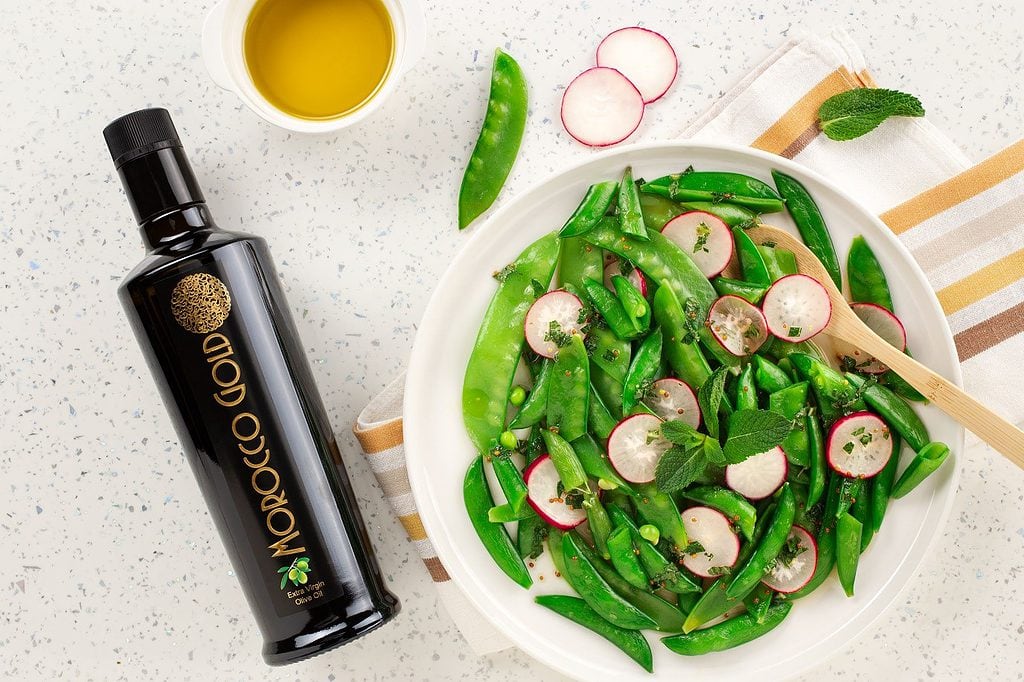Researchers Urge Transition To Adopt Health Benefits Of Olive Oil And The Mediterranean Diet
Following the Mediterranean Diet, including extra virgin olive oil and fresh, sun-ripened plant-based foods is a ‘winning combination for health’ according to a top scientist.
Updated 8th November 2023

Summary:
Contents:
- New Study Says Western Culture Should be Reshaped Around Principles Of The Mediterranean Diet.
- The Mediterranean Diet Relies On Extra Virgin Olive Oil, Fresh Fruit And Vegetables
- Can You Save Money By Switching To The Mediterranean Diet?
- The Mediterranean Diet: How To Get Started
New Study Says Western Culture Should be Reshaped Around Principles Of The Mediterranean Diet.
A researcher from the University of Warwick says that to promote better health within Western societies, it’s essential to reshape our food culture. This means moving away from unhealthy, ultra-processed, sugar-laden, and fibre-depleted foods and gravitating towards wholesome, fibre-rich, plant-based foods and extra virgin olive oil, reminiscent of the Mediterranean diet.
Dr Thomas Barber is an Associate Clinical Professor and lead of Obesity Services at University Hospital Coventry and Warwickshire. He has been exploring the secrets to a healthier life and the transformative potential of the ‘Mediterranean Diet. The key to its success lies within ‘healthy fats’, particularly extra virgin olive oil. With overwhelming evidence supporting the health-promoting effects of the Mediterranean Diet (MD), researchers say it’s time to embrace this Mediterranean gem for a better and healthier future.
The Mediterranean Diet Relies On Extra Virgin Olive Oil, Fresh Fruit And Vegetables
A recent press release from the University of Warwick explains the findings, saying:
The Mediterranean diet has long been revered for its ability to reduce the risk of heart disease, enhance cognitive function, and maintain a healthy weight. So, why isn’t everyone adopting this path to well-being?
As its name suggests, the MD thrives in Mediterranean countries, where extra virgin olive oil, fresh fruits, and vegetables abound throughout the year. Yet, this very abundance points to a significant hurdle faced by the rest of the world.
You might want to try vegetable-heavy dishes, like griddled chicken with quinoa Greek salad, salmon with hummus & and roasted tomatoes, or stuffed peppers, finished with an olive oil-based dressing and fresh fruits for dessert.
Availability of the MD’s essential components, particularly during winter months, might explain the lack of its widespread adoption outside the Mediterranean regions.
But, it’s not just about availability. Millennia of cultural integration and alignment with the Mediterranean lifestyle and climate make it harder for non-Mediterranean populations to fully embrace the MD.”
Dr Thomas Barber.
This calls for a collective ‘to-do’ list to encourage and inspire each other to cook from raw ingredients and rediscover the joy and fulfilment of healthy eating as our ancestors have done for aeons.”
Over generations, the Mediterranean Diet has become ingrained in Mediterranean cultures, seamlessly blending into the fabric of their daily lives. The joy of eating alfresco and the reduced reliance on hot food naturally complement the dietary principles of the Mediterranean Diet.
For those from non-Mediterranean backgrounds, cultural hurdles present challenges in adopting this healthy lifestyle. Moreover, the palatability of ingesting substantial amounts of fruit, vegetables, and the best extra virgin olive oil daily can be an obstacle for many.
In addition, researchers celebrate the environmental impact of the Mediterranean Diet, as it’s very environmentally friendly as well, particularly regarding water usage and CO2 emissions. The EAT-Lancet Commission, tasked with developing healthy and environmentally sustainable diets by 2050, produced targets that are very similar to traditional Mediterranean Diet.
Saving Money By Switching To The Mediterrranean Diet
In short, the answer to this question is yes! Although The Mediterranean Diet continues to grow in popularity around the world, there is a common misconception that it can be costly to follow. But, according to the study, which was recently published in the scientific journal Nutrients,a family of four can save $28 AUD ($19 US) per week, amounting to a substantial $1456 AUD ($987 US) per year, by adopting the Mediterranean diet as opposed to the typical Western diet.
The study involved a comparison of three food baskets based on the typical Australian Western diet, the Mediterranean diet, and the Australian Guide to Healthy Eating (AGHE).
As summarised in VegNews.com, the results indicated that while both the Mediterranean diet and AGHE met the recommendations for essential nutrients, macronutrient distribution, and key micronutrients associated with good health, the typical Australian diet was deficient in crucial elements such as fiber, zinc, potassium, calcium, magnesium, vitamin E, and vitamin B6.
Furthermore, it was found that the Western diet had double the recommended salt intake. The cost breakdown of the Mediterranean diet revealed that it amounted to $78 AUD ($53 US) per week for a single person household; $135 AUD ($92 US) for a household of two; $211 AUD ($144 US) for a family of three; and $285 AUD ($193 US) for a family of four.
The Mediterranean Diet: How To Get Started

Whether you are completely new to the principles of the Mediterranean Diet or just need a bit of a refresher, fear not! At Morocco Gold we really love talking about the health benefits of The Mediterranean Diet so here is a brief summary of what you need to get started.
The Mediterranean Diet has been praised as one of the healthiest ways to eat, and it’s easy to understand why. At its core, the key components of the Mediterranean Diet are simple: plenty of plant-based foods, healthy fats, and whole grains, as well as the occasional intake of red wine.
One of the most important elements of this diet is the use of extra virgin olive oil, which is rich in antioxidants and heart-healthy monounsaturated fats. Other staples include legumes, nuts, fresh fruits and vegetables, and seafood.
In fact, many traditional Mediterranean dishes feature these ingredients prominently, such as Greek-style salads with feta cheese, hummus made with chickpeas, and Italian-style grilled vegetables with balsamic vinegar.
By incorporating these key elements into your own diet, you can enjoy the many benefits of the Mediterranean way of eating.
For more recipe inspiration and reasons research on why The Mediterranean Diet is a good for your health please come and visit Morocco Gold extra virgin olive oil here.
Citation for University Of Warwick article:
Barber TM, Kabisch S, Pfeiffer AFH, Weickert MO. The Effects of the Mediterranean Diet on Health and Gut Microbiota. Nutrients. 2023 Apr 29;15(9):2150. doi: 10.3390/nu15092150. PMID: 37432307; PMCID: PMC10180651.
